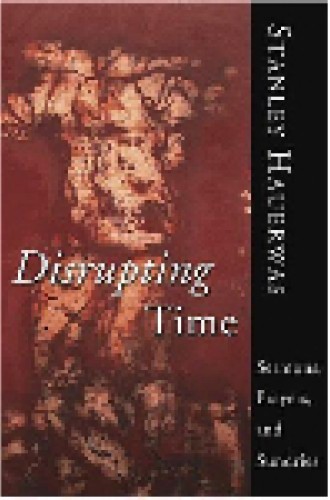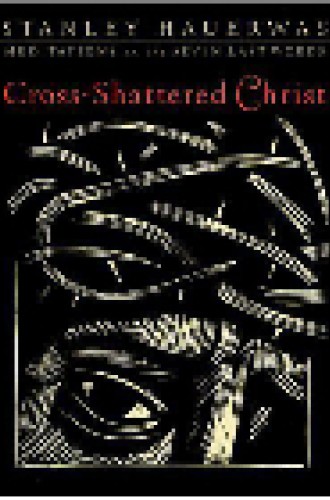Occasional prayers
Even Stanley Hauerwas’s friends have their criticisms of his work. Richard Hays wonders why he so rarely pays close attention to the specific words of scripture. Robert Jenson asks why he so infrequently deals with particular Christian doctrines. And nearly everyone wonders whether the church of a self-proclaimed “high-church Mennonite” could have more than one member. United Methodists object that he has promised to be loyal to their church with his “prayers, his presence, his gifts and his service,” yet he now worships with the Episcopalians.
These would seem to be fatal criticisms. How can someone so concerned about specific Christian practices avoid exegesis, doctrine and ecclesial particularity?
Many theologians respond to criticisms with further learned essays, and Hauerwas has done so elsewhere. In these two books, however, he responds with a display of his primary identity as a churchman (to use an archaic but appropriate word). Or better yet, Hauerwas’s friends respond this way. For these books contain “sermons, prayers, and sundries” occasioned by his friends’ requests that he teach, preach and pray in specific circumstances.
Because the church expects preachers to use the lectionary, Hauerwas pays close attention to the words and movements of scripture here. The meditations in Cross-Shattered Christ are on Jesus’ “seven last words.” Hauerwas delivered the sermons during Holy Week, so specific doctrines are always close at hand. And because specific persons and churches asked him to teach, preach and pray, these meditations are as concrete as can be, referring to friends, places, books and baseball teams.
Hauerwas continues here a project he calls the “re-Judaization of Christianity.” He sees a “silent anti-Semitism” arising in the reduction of the virtue of hope to a general anticipation that things will improve; in the paring down of the gospel to the command to love; and in Protestants’ infrequent celebration of communion. Such claims and activities do not require God’s election of a particular people, Israel, to be his body in the world.
The triune God loves fleshy things—Israel, the Eucharist, his Virgin mother, our bodies—as attested to supremely in his election of Israel and his incarnation. “Put as starkly as I can put it: if Christian envy of the Jews is ever so effective that we are able to destroy the last Jew from the face of the earth, then God will destroy the earth. Our God is not some generalized spirit, but a fleshy God whose body is the Jews.”
This taste for the particular carries over into every topic. Marriage, as an image of God’s love for Israel and the church, cannot be handled abstractly. Marriage reflects God’s faithfulness, so its dissolution warps human witness to the fidelity of God. In a sermon on the anniversary of a friend’s ordination, Hauerwas notes Paul’s insistence that the Thessalonians’ relationship to him as an apostle is intermingled with their relationship to God, and suggests to the congregation that its relationship to its pastor “indicates your relationship to Jesus Christ.”
The links that bind us together as God’s body define our lives and give us joy. This is why Christians’ killing of Christians is suicide, and why we must not kill anyone who is potentially part of God’s body. Without such links, we’re lonely enough that we embrace patriotism or other false solutions to “everyday nihilism.” With these links, we can see kinship in the most unlikely people, with whom we would joyfully be part of the body of Christ together rather than violent enemies. Hauerwas tells of a “bag lady” who attended his church in South Bend, Indiana. She would pray, “Dear Lord, I am hurting this week. I have a cold and my legs hurt. Make these people help me.” A beggar instructing “a congregation of white liberals who came to church to assure one another we did not need one another” taught them that they are, like her, beggars.
The prayers here stretch from the depths (a prayer upon the suicide of an eleven-year-old) to the heights (a prayer of thanksgiving for a village in Uganda that has running water for the first time). He names the difficulty of prayer: “God, most days I think the hardest thing I have to do is pray.” And his prayers cleave to a christological baseline: “Most Holy, Most Gracious, Awesome, Omnipotent. Those adjectives give us the impression . . . that you are the ‘biggest thing around.’ But the biggest thing around will not fit in a manger.”
His prayers decry liberal formulations: “‘Well, I guess when it is all said and done we each have to make up our own minds.’ What shit, but how we do love our comforts.” He names Christian practices that offer alternatives to violence: “Argument, it seems, is your salvation—an alternative to the violence of the world.” And he positively fights with God, like the psalmist whose language he often imitates: “I need to warn you, Jesus, to give me a soul capable of begging is not going to be easy.” Such prayers makes us more inclined to think God might be real and frightening, that he might shatter his Christ on a cross and so disrupt our vision of time as to make it holy.
As for specific Christian doctrines, in an extraordinary sermon preached in Scotland Hauerwas distinguishes between history and providence. With providence, the past can be redeemed, whereas with history, as we moderns conceive it, the past is simply past. Therefore Christians can and must read the Old Testament christologically, for it is no “imposition” of a false “meaning” but a sign that the God we worship today is forever God.
In preaching on the “seven last words,” Hauerwas resists the desire to psychologize Christ’s statements, to imagine more about Christ’s “inner state” than the text allows. These words are not about a God who “meets our needs,” for such a god would be “useful to us, rather than the God who judges nations and empires.” The Gospel writer’s reticence is intentional, a marker of the silence with which we must approach a God about whom we can say much but understand nothing. So, for example, the cry of dereliction is neither God’s announcement that he feels our pain nor “the solution to the problem of death. Rather this is the death of the Son of God.” It is a particular event that draws us into the life of the Trinity, not a general religious teaching from which we can abstract information that may help us feel better.
These books display Hauerwas’s keen eye for the ways moderns read scripture and interpret faith. They also reveal the big-tent evangelist in Hauerwas, the “lover,” as he calls himself, of friends, his wife, the church and God. Perhaps Methodists, the people of big-tent evangelism and the warmed heart, have not entirely lost him.






